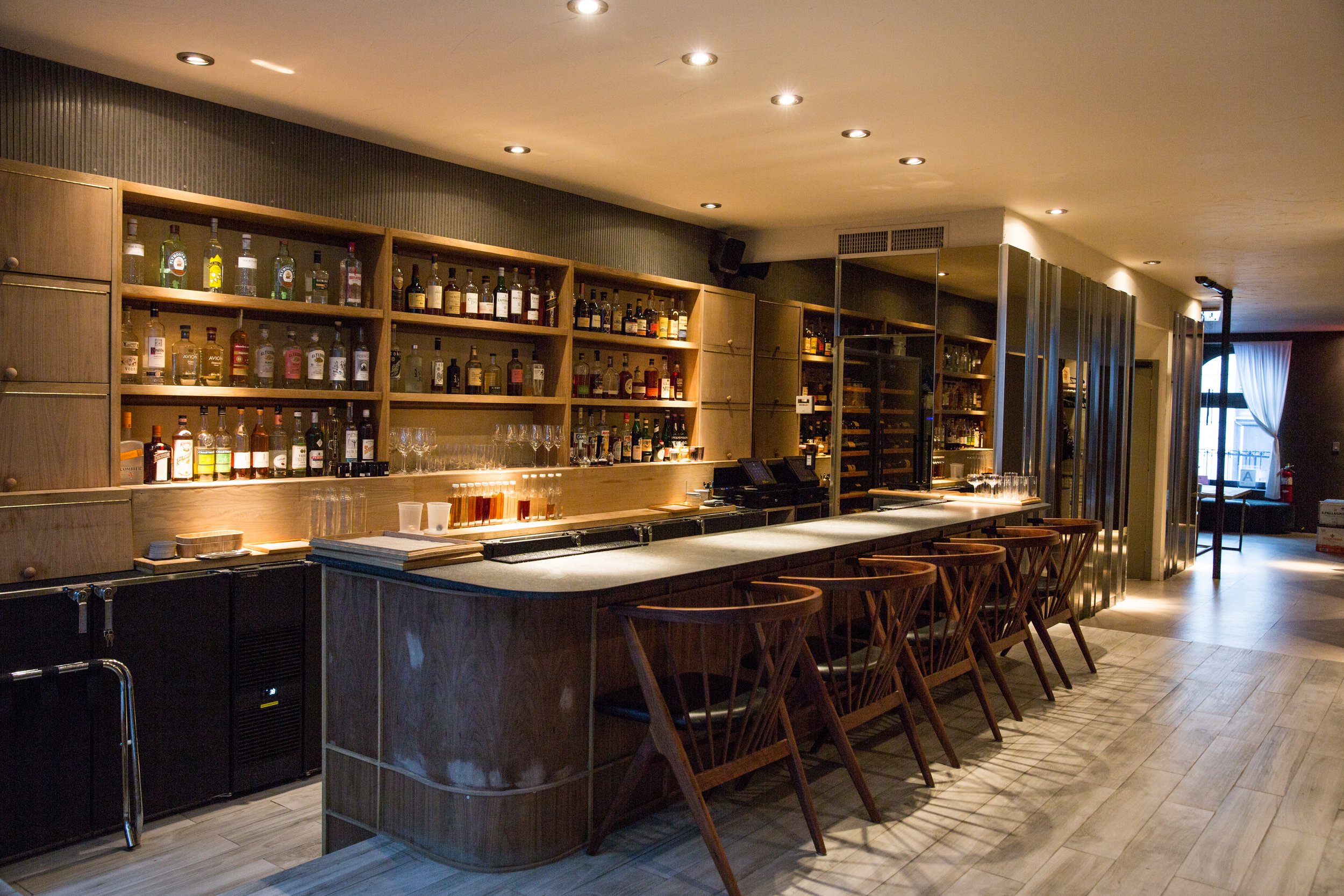Once Around the Kitchen
For New Orleans, by New Orleans: Chef Dré Glass of Once Around The Kitchen prioritizes accessibility through consumer packaged goods.
DRÉ GLASS
Along the aisles of The Rabbit’s Foot, a market and café in New Orleans’ Garden District, are jams, jellies and hot sauces from Once Around the Kitchen. Born from the mad scramble and chaos of the early COVID-19 pandemic, this cottage business has morphed from its community meal service roots to become a provider of affordable Consumer Packaged Goods (CPGs). But throughout the company’s journey, Owner Dré Glass has always maintained the belief that good food should be available for all citizens, not just a privileged few. It’s a position that a growing constellation of organizations in the New Orleans area are focusing on as they take aim at the many hurdles obstructing startup businesses in the Crescent City.
Glass grew up on a farm in rural Ontario just outside of Niagara falls, in a family that viewed homemade food as a practical necessity. Making jams and jellies to preserve produce for the long winter months was just part of the landscape. After a career as a professional winemaker, Glass moved to New Orleans on a whim, became a bartender, and “forgot to leave.” And then, the COVID-19 pandemic hit.
She and her husband had married just 45 days before the shutdown, and due to the bureaucracy of the citizenship process, Glass found herself unable to receive stimulus or other benefits of the CARES act. “I’m terrible at sitting still and started to freak out about it,” she recalls. But really, her concerns were more about others than herself. “My pivot was making big pots of food and delivering [them] around the city to some hospitality industry friends.” The outreach swiftly grew to include anyone in need. Baskets containing three to four internationally-inspired and locally-sourced home-cooked meals were purchased for $40—all the tips were used to create meals for shelters, community fridges, and low-income families in the area. At her peak, Glass was delivering 35 to 40 baskets a week and providing 100 meals back to the community. In this spirit, Once Around the Kitchen was born.
Established during the ongoing national reckoning of hospitality workers’ rights, Once Around the Kitchen was one of many New Orleans-based small businesses that benefited from peers and grassroots organizations. Rising Stars alum Leighann Smith, owner of Piece of Meat, donated food inventory and the use of her commercial kitchen. Tom Oliver of Coffee Science was a resource as well, having launched a community market that waived vendor’s fees to help launch start-ups and pop-ups. Trap Kitchen on Poland Avenue was another, providing commissary space and hosting pop-ups and markets. This synergy has helped to create a network of resources that continues to spin out creative and diverse culinary creations. In the words of Trap Kitchen, they “create a place for chefs and food entrepreneurs to grow, provide ways to feed our neighbors, and foster relationships across the food ecosystem.”
New Orleans needs it. While the city has a justifiably famous restaurant scene, this can be viewed as “in spite of,” and not, “because of” the city’s support. Decrepit infrastructure, unreliable utilities, and a Balkanized permitting and regulatory system make just trying to open a business a non-starter for many. Procedures resulting from the COVID-19 pandemic forced an already creaky City Hall to basically grind to a halt, immediately impacting small business owners like Glass. “When I finally received my Occupational License, I looked at it and saw it expired two days before it was actually issued,” she says. She pointed this out to staff, saying they must have put the wrong date on it. “They said, ‘No, it’s correct.’ I wasn’t sure how to proceed.”
Tomato Jam, Red Wine Mustard, Red Wine-Rosemary Jelly, Local Farmhouse Cheddar, Pickled Romanesco, Pecans, Mayhew Bakery Bread
Italian Sausage and Bell Peppers Empanadas, Bread and Butter Zucchini Pickles, Greens, Red Wine Jelly, Balsamic Vinegar
For visitors and the reasonably well-off, the New Orleans restaurant scene is a playground. For those trying to just get by, it is a challenge—with rising rents, sales tax that can crack 10 percent, and high operating costs in relation to gross revenue. It makes things tough on operators and customers alike. Painfully aware of this disconnect, it is part of what made Glass pivot from an earlier food delivery model to CPG. “Prices are so high—the cost of takeout containers finally blew up the model,” she says. “People are like, ‘Well, you could just raise your price,’ but that’s not the kind of people I’m trying to feed. Sure, people would pay more for this, but those people have a lot more resources and can afford things like HelloFresh. I’m trying to help the single mom that can’t splurge $40 just to take a break from having to cook dinner.”
Back at Rabbit’s Foot, Glass keeps her costs down by growing the peppers for her pepper jelly herself. She uses just one type of jar and a standardized label. Boutique jams can have a stigma of exclusivity, which Glass tries to avoid. Pepper jellies, wine jellies, hot sauce, and pickles such as okra and brussels sprouts are all offered “I will pickle, like, anything,” Glass says.
Going into fall, Glass plans to branch back out into farmers markets as well as the monthly art market at Zony Mash Beer Project. And moving forward, Once Around the Kitchen will continue to evolve as a reaction to the New Orleans community. “First and foremost, it’s important to listen to the community, and see what their wants and needs are,” says Glass. “It’s important to understand it, and not overstep it. To be quiet and listen to the city.”









